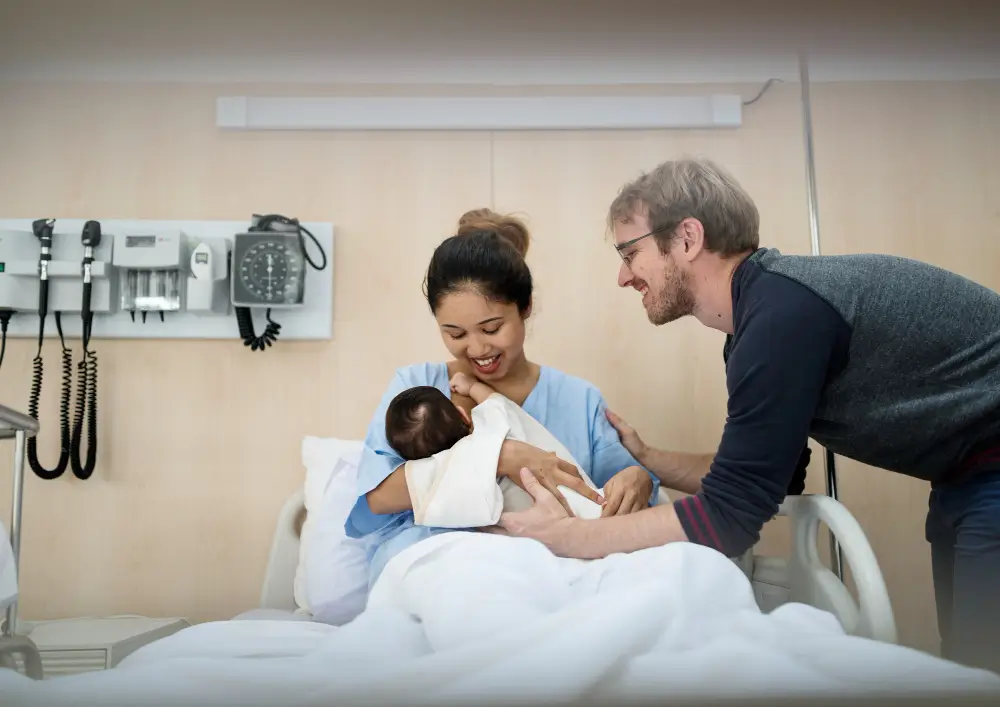Egg donation is a life-changing, altruistic act. Whether you’re curious about what an egg donation cycle is or already considering becoming a donor, this guidebook will take you through each step of your egg donation cycle in New York.
At EggDonors4All, we walk first-time donors through the process—from application to recovery. This site will assist you in having your questions answered, describe the medical process, and detail to you precisely how it works.
What Is an Egg Donation Cycle?
An egg donation cycle is the entire procedure that a woman would go through in order to donate her eggs for fertility treatment. It encompasses screening, legal contracts, hormone stimulation, egg retrieval, and after-care.
Knowing what an egg donation cycle is eliminates uncertainty and gives one confidence. Whether donating for the first time or looking ahead into the future, knowing the entire process is important.
Step 1: Understand the Basics of Egg Donation
Egg donation gives healthy females a chance to give eggs to someone or a couple suffering from infertility issues. These eggs are fertilized through IVF and implanted in the surrogate’s or recipient’s uterus.
We at EggDonors4All work with top fertility clinics and treat our donors with care and respect.
Step 2: Check Eligibility for the Egg Donation Cycle
Before beginning your first egg donation cycle, you will need to satisfy some minimum qualification criteria. Donors in New York must:
- Be between the ages of 21–30
- Be physically and mentally healthy
- Have a normal BMI
- No smoking, no drug use, no alcohol consumption
- No genetic medical conditions
Learn more on our Egg Donor Requirements page.
Step 3: Apply to Become an Egg Donor
Once eligibility is confirmed, you will submit an application that includes personal, lifestyle, and family health history. This helps the intended parents make the right match.
You can start by filling out the form on our Become an Egg Donor page.
Step 4: Complete Medical and Psychological Screening
This is done to confirm that you are ready for the egg donation cycle. It involves:
- Blood and hormone tests
- Genetic tests
- Pelvic ultrasound
- Mental health assessment
The legal process is a matter of just a few days and focuses on your health and well-being.
Step 5: Legal Process and Consent
Before you can have the medical aspect of your egg donation cycle, you will meet with a specialist in law to go over and sign a contract. The agreement is your rights, confidentiality, and payment terms.
Free access to representation by a lawyer is made available to you.
Step 6: Begin Hormonal Medication and Monitoring
This is where the actual medical egg donation cycle begins:
- Your cycle will be coordinated with the recipient
- You’ll begin hormone injections to stimulate egg development
- You’ll be having frequent ultrasounds and blood tests to monitor progress
The process typically lasts 10–14 days.
Step 7: Undergo Egg Retrieval
After your body is ready, you’ll be scheduled for egg retrieval. It’s a brief outpatient surgery done under sedation. The surgery lasts approximately 20–30 minutes and is essentially painless.
Most donors go back to normal life the next day.
Step 8: Post-Egg Retrieval Care
Recovery from the egg donation cycle is normally uneventful. Some donors experience minor bloating or cramping, which clears up in a few days.
You’ll attend a follow-up appointment to ensure you’re recovering well. Our team remains available for support 24/7.
Why EggDonors4All?
- ✔ 100% free process for donors
- ✔ Safe, ethical, and legal donation experience
- ✔ Trusted by top fertility clinics in New York
- ✔ Personal coordinator support
- ✔ Competitive donor compensation
Donor Testimonial
“I had no clue what an egg donation cycle was before I started. EggDonors4All explained everything to me, and it was a piece of cake. Best decision I ever made.”
– Anjali M., Brooklyn, NY
Frequently Asked Questions
Q1. What is an egg donation cycle, and how long does it take?
Ans: It’s the entire process of donating your eggs—from screening to recovery. A complete cycle normally takes 4–6 weeks.
Q2. How many times can I donate?
Ans: You can generally do a maximum of 6 egg donation cycles, subject to approval by the clinic and medical guidelines.
Q3. Will I lose all my eggs?
Ans: No. Your body loses eggs naturally every month. Donation only results in more eggs in one cycle.
Q4. Does the egg donation cycle affect fertility?
Ans: No. Our research shows that egg donation does not have any effect on long-term fertility or your ability to have children.
Q5. What if I have questions during the process?
Ans: We assign you a personal coordinator to guide you through all parts of your egg donation cycle.
Conclusion: Ready to Start Your First Egg Donation Cycle?
Now that you’ve gotten a sense of what an egg donation cycle is like, you can begin the process that can transform a person’s life — and yours. No matter if it’s your first time or if you’re considering donating again, we make the experience safe, comfortable, and rewarding.

Dr. Kulsoom Baloch
Dr. Kulsoom Baloch is a dedicated donor coordinator at Indian Egg Donors, leveraging her extensive background in medicine and public health. She holds an MBBS from Ziauddin University, Pakistan, and an MPH from Hofstra University, New York. With three years of clinical experience at prominent hospitals in Karachi, Pakistan, Dr. Baloch has honed her skills in patient care and medical research.










